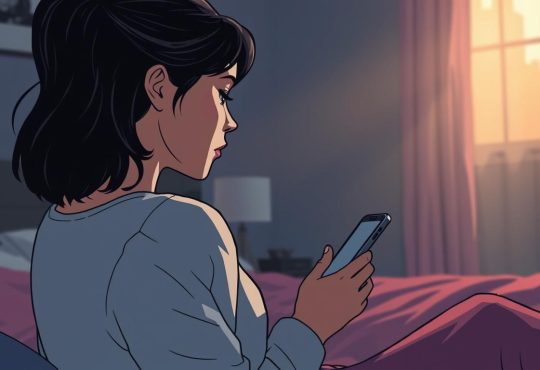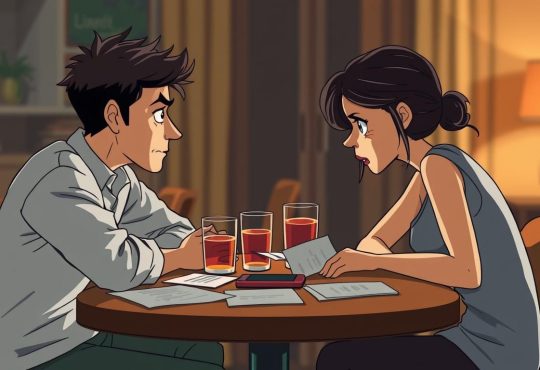
Have you ever wondered if someone is truly ready for a new relationship after a divorce? Understanding the emotional journey of a person who’s recently ended a marriage can be key to building a healthy connection. It’s not just about timing—it’s about mindset, growth, and clarity.
Take Wendy Newman’s experience, for example. She met her partner when he was only separated, and their relationship evolved as he navigated his emotional landscape. Wendy highlights distinct types of men post-divorce: the “I’m free” type, the “hot mess,” and those with “terrible timing.” Each brings unique challenges and opportunities.
Whether it’s about commitment, emotional readiness, or understanding the past, this article dives into what you need to know. Let’s explore how to approach these relationships with empathy, patience, and clear boundaries.
On this Page:
- 1 Understanding the Recently Divorced Mindset
- 2 Dating a Recently Divorced Man: What to Expect
- 3 Identifying the Different Types of Divorced Men
- 4 Navigating Emotional Baggage and Mixed Signals
- 5 Practical Tips for Building a Healthy Relationship
- 6 Learning from Real Experiences and Expert Advice
- 7 How Divorce Can Offer Unexpected Relationship Benefits
- 8 Advice to Identify and Avoid Relationship Rebounds
- 9 Conclusion
Understanding the Recently Divorced Mindset
Navigating the emotional landscape of someone after a divorce can be complex. The end of a marriage often leaves a person grappling with a mix of feelings, from relief to sadness. This emotional aftermath shapes how they approach new connections, making it essential to understand their mindset.
Emotional Aftermath of Divorce
Divorce is a life-altering event that can take time to process. Many individuals feel a sense of loss, not just for the marriage but for the future they envisioned. This period of adjustment often leads to alternating behavior—moments of openness followed by withdrawal.
Studies show that it can take one to three years for someone to emotionally recover. During this time, they may focus on rebuilding their life, spending time with friends, or reconnecting with their child. Understanding this phase helps in managing expectations and offering support.
Managing Fears of Commitment
Commitment can be a significant concern for someone post-divorce. The fear of reopening old wounds or repeating past mistakes often lingers. This hesitancy isn’t always a red flag; it’s a sign they’re processing their past.
Real user feedback highlights this complexity. One forum participant shared, “I wasn’t bothered by it—it shows he’s not afraid to take things slow.” Gentle communication and patience are key to navigating these fears and building trust.
By observing their behavior and asking thoughtful questions, we can gain clarity. This effort helps in understanding whether their hesitancy is genuine or a sign of deeper issues. It’s all about finding balance and moving forward together.
Dating a Recently Divorced Man: What to Expect
Building a connection with someone post-divorce often comes with its own set of challenges. It’s important to recognize that this person is navigating a significant life transition. Their mindset, priorities, and emotional availability may differ from someone who hasn’t experienced the end of a marriage.
When entering a relationship with a guy who’s recently separated, timing plays a crucial role. Wendy Newman’s insights highlight how dating in the first week after separation can create confusion. The person may oscillate between seeking fun and grappling with deeper emotional issues.
Initial chemistry can be strong, but it’s not uncommon for uncertainty to emerge. One moment, they might engage deeply, and the next, they could pull away. This behavior often stems from their attempt to reconcile their past with the present.
Patience is key. Many men in this phase are still processing their previous relationship. They might seek attention or companionship without being ready for a serious commitment. It’s essential to communicate openly and set clear boundaries to avoid misunderstandings.
Understanding these dynamics can help you navigate the relationship more effectively. By reading subtle cues and being patient, you can build a connection that respects both your needs and theirs.
Identifying the Different Types of Divorced Men
Post-divorce behavior varies widely, and recognizing these patterns is key. Understanding the mindset of someone who’s ended a marriage can help you navigate new connections with clarity and empathy. Let’s explore three common types of men after divorce, each with unique traits and challenges.
The “I’m Free, Free, Finally Free” Type
This type often seeks fun without worrying about the future. Their outlook on relationships is carefree and lighthearted. They might embrace their newfound freedom wholeheartedly, focusing on adventures rather than commitment.
One thing to note is their need for independence. While they can be charming and exciting, they may lack emotional depth. This guy might seem ready for a new connection, but his priority is often enjoying life without strings attached.
The “Hot Mess” Approach
This person is still processing their recent breakup, and their emotions can be erratic. They might swing between intense affection and sudden withdrawal. Their way of handling emotions can feel overwhelming for someone new in their life.
From one day to the next, his behavior might change drastically. The main issue is their emotional unavailability. While they might seem eager to connect, they’re often not ready for a serious relationship.
The “Terrible Timing” Category
This guy might show genuine interest but struggle with timing. They’re rebuilding their life and may not be ready for commitment. Their previous marriage often shapes their behavior, making it hard to fully invest in a new relationship.
Ask yourself this question: Is he ready for a new relationship? If he has a kid, his priorities might shift unexpectedly. Understanding his timing can help you manage expectations and avoid emotional pitfalls.
By recognizing these types early, you can better navigate the complexities of dating someone post-divorce. Trust your instincts and communicate openly to build a connection that works for both of you.
Mixed signals are common when someone is still processing a major life transition. Emotional baggage from a past relationship can create confusion in new connections. It’s essential to approach these situations with patience and understanding.
Understanding Red Flags vs. Genuine Hesitation
Red flags in behavior, such as inconsistency or avoidance, often indicate deeper issues. Genuine hesitation, on the other hand, may stem from a need for time to heal. Observing patterns and asking thoughtful questions can help clarify intentions.
For example, if a person shows interest one week but pulls back the next, it might not be a sign of disinterest. They could be grappling with unresolved emotions. Open communication is key to understanding their mindset.
Communicating About Past Experiences
Discussing past relationships can be challenging but necessary. Miscommunication about previous experiences often leads to misunderstandings. Approach these conversations with empathy and respect.
Ask clarifying questions without being confrontational. For instance, “How do you feel about starting a new relationship?” can open a dialogue. This way, you can gauge their emotional readiness and build trust.
Protecting your own emotions is equally important. If mixed signals persist, it’s okay to step back and reassess the relationship. Self-respect ensures you don’t lose sight of your needs.
Practical Tips for Building a Healthy Relationship
Starting a relationship with someone who’s been through a divorce requires patience and understanding. It’s essential to approach this journey with clear intentions and a focus on mutual growth. Let’s explore actionable steps to create a strong foundation.
Setting Boundaries and Expectations
Clear boundaries are the cornerstone of any healthy relationship. Discuss expectations early to avoid misunderstandings. For example, talk about how much time you’ll spend together or how you’ll handle communication.
Mutual respect is key. Be honest about your needs and listen to theirs. This way, both partners feel valued and understood. Open dialogue fosters trust and reduces potential conflicts.
Investing in Self-Care and Personal Growth
While supporting your partner, don’t neglect your own well-being. Engage in activities that bring you joy and help you stay grounded. Whether it’s a hobby, exercise, or spending time with friends, self-care is vital.
Personal growth strengthens the relationship. When both individuals focus on their own development, they bring more positivity and energy to the partnership. This balance ensures that neither person feels overwhelmed or neglected.
By setting boundaries, communicating openly, and prioritizing self-care, you can build a relationship that thrives. It’s about creating a space where both partners feel supported and respected.
Learning from Real Experiences and Expert Advice
Real-life stories and expert advice offer a roadmap for building meaningful connections. By combining insights from professionals and relatable experiences, we can approach new relationships with confidence and clarity. Let’s explore how others have navigated similar challenges and what we can learn from their journeys.
Insights from Relationship Experts
Relationship experts like Wendy Newman emphasize the importance of patience and clear communication. According to Newman, understanding the emotional landscape of someone post-divorce is key to building trust. She suggests asking thoughtful questions to gauge their readiness for a new connection.
Experts also recommend setting boundaries early. This ensures both partners feel respected and valued. By focusing on mutual growth and self-care, we can create a foundation for a healthy relationship.
User Stories and Forum Discussions
Many women have shared their experiences in online forums, offering valuable lessons. One user described how taking things slow helped her partner heal and open up. Another highlighted the importance of self-care while supporting someone through their emotional journey.
These stories remind us that every relationship is unique. What works for one person may not work for another. However, the common thread is the value of empathy, patience, and open dialogue.
By learning from others, we can avoid common pitfalls and build stronger connections. Whether it’s through expert advice or shared experiences, the insights we gain can guide us toward healthier, more fulfilling relationships.
How Divorce Can Offer Unexpected Relationship Benefits
While divorce is often seen as an ending, it can also be a beginning filled with unexpected growth and clarity. For many, the experience of ending a marriage becomes a powerful teacher, offering lessons that shape future connections in meaningful ways.
Gaining Experience Through Past Mistakes
One of the most valuable things a person can gain from divorce is the wisdom of past mistakes. When a guy reflects on what went wrong, he often gains a clearer understanding of his needs and boundaries. This self-awareness can lead to healthier, more intentional relationships in the future.
For example, studies show that individuals who take time to process their divorce are more likely to approach new connections with a grounded perspective. They’ve learned what doesn’t work, which helps them avoid repeating the same patterns.
Opportunities for Personal Growth and Clarity
Divorce forces a person to confront their vulnerabilities and grow from them. This process can lead to a deeper sense of self and a clearer vision of what they want in a partner. Many find that they emerge from the experience with a stronger sense of identity and purpose.
Real-life stories highlight this transformation. One individual shared how their divorce taught them to prioritize communication and emotional honesty. These lessons became the foundation for a more stable and fulfilling relationship later on.
By embracing the challenges of divorce, we can turn them into opportunities for growth. This mindset not only benefits the individual but also enriches their future connections, creating a stronger foundation for love and partnership.
Advice to Identify and Avoid Relationship Rebounds
Understanding the difference between a genuine connection and a rebound can save you from emotional pitfalls. Rebound relationships often arise from a need for validation or companionship rather than a desire for long-term commitment. Recognizing the signs early can help you make informed decisions and protect your heart.
Recognizing Inconsistent Communication
One of the most telling signs of a rebound is inconsistent communication. A guy might be enthusiastic one week and distant the next. This behavior often stems from unresolved emotions or uncertainty about what he wants.
Pay attention to patterns. If his actions don’t align with his words, it could be a red flag. Open, honest conversations can help clarify his intentions and whether he’s ready for a real relationship.
Balancing Instant Chemistry with Long-Term Goals
Instant chemistry can be exciting, but it’s not always a sign of lasting compatibility. Rebound relationships often thrive on the thrill of something new, rather than a deep, meaningful connection.
Take your time to evaluate whether the relationship aligns with your long-term goals. Ask yourself if the connection feels authentic or if it’s just a way to fill a temporary void. Patience and self-reflection are key to avoiding rebounds.
By staying mindful of these signs and prioritizing your emotional well-being, you can navigate new relationships with confidence. Trust your instincts and take things one step at a time to build a connection that’s built to last.
Conclusion
Navigating relationships after a significant life change requires patience and understanding. Throughout this article, we’ve explored the emotional baggage, types of men, and mixed signals that can arise. These insights help us approach new connections with clarity and empathy.
Clear communication and personal boundaries are essential. They create a foundation for trust and mutual respect. While the journey may have its challenges, growth and genuine connection are attainable.
We encourage you to use this advice as a roadmap. Every experience, even a rebound, offers valuable lessons. Reflect on your needs and approach relationships with informed patience.
Remember, the right mindset and effort can lead to better outcomes. By staying open yet cautious, you can build a bond that’s both meaningful and fulfilling.










